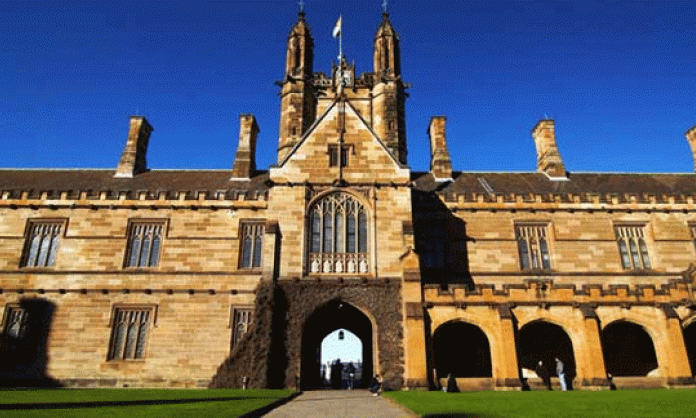Vice-chancellors of elite universities are on a mission to strengthen education minister Chris Pyne’s spine.
A delegation of university heads, led by Sydney Uni VC Michael Spence, travelled to Canberra in August, just as legislation to deregulate fees and allow universities to charge whatever they like for their degrees was introduced into parliament. The point of their visit was to urge Pyne to push ahead with his education cuts, which would slash government funding to universities by 20 percent and pave the way for massive fee hikes.
The vice-chancellors have been increasingly vocal in their support for deregulation, which they claim is the only way to make up for government funding shortfalls. Belinda Robinson, the chief executive of the vice-chancellors’ group Universities Australia, argues, “With budgets under pressure, governments faced with a myriad of competing priorities for public funding, and successive governments being disinclined to invest at the level that repeated independent reports have shown to be needed, full deregulation of higher education is needed.”
This statement raises the question: Why aren’t the vice-chancellors using their influence to lobby against government education cuts?
To answer that, just follow the money. If Pyne’s legislation gets through the Senate, mega-profits will flow into the hands of the vice-chancellors. According to leaked confidential modelling prepared by the Pilbara Group, Australia’s elite universities, those in the Group of Eight, stand to increase their profits by up to half a billion dollars a year as a result of fee deregulation.
The modelling presented different scenarios for program changes that the most prestigious universities, such as Melbourne and Sydney, may offer in a deregulated system. In every scenario, including those which accounted for student numbers reduced by more prohibitive fees, elite universities would enjoy healthy profit margins. The scenario with the least drastic changes still predicted that universities would be nearly $200 million a year better off post-deregulation.
The modelling revealed a high probability of $100,000 degrees.
Projected course fee increases showed the potential for universities to charge more than $30,000 a year for degrees like law and dentistry. That means a five year law degree could cost $150,000 after deregulation. A science degree at a Group of Eight university is projected to cost $60,000, putting such areas of study far out of reach of all but wealthy students.
Additionally, the modelling revealed extensive financial benefits for sandstone universities that cut vocational courses and focus narrowly on degrees that can be sold at a high price. For example, one scenario demonstrated that the sandstone universities could increase profits by more than $400,000 by ditching nursing schools alone.
The vice-chancellors of the most prestigious universities have long trumpeted the benefits of smaller, research-focused institutions. Ian Young, the chair of the Group of Eight, has lauded deregulation as an opportunity for universities to “downsize, to teach fewer students whilst increasing the amount spent upon each student”.
Such a restructure would not be about more quality teaching, but about improving the international rankings of Australia’s sandstone universities. International rankings, largely determined by research output of universities, are the university sector’s market measure. Higher rankings mean higher profits.
Whichever way the vice-chancellors try to spin it, deregulation will result in a less accessible, two-tier higher education system. In Ian Young’s own words, as the elite universities “enrol fewer students, those who might otherwise have enrolled or aspired to a Group of Eight university will be available to ‘lower tier’ institutions and we will have a system in which everybody wins.” According to the university heads, poor students don’t belong in the hallowed halls and courts of the sandstones anyway.
Young’s logic should not come as a surprise. The vice-chancellors are the corporate managers of the universities. Their aim is to increase profits with no regard for students or the quality of education. This is why the vice-chancellors now leading the deregulation charge have overseen the massive casualisation of university staff to reduce teaching costs, gross extortion of international students through huge fees and savage course cuts, which are the products of the increasing neoliberalisation of tertiary education.








